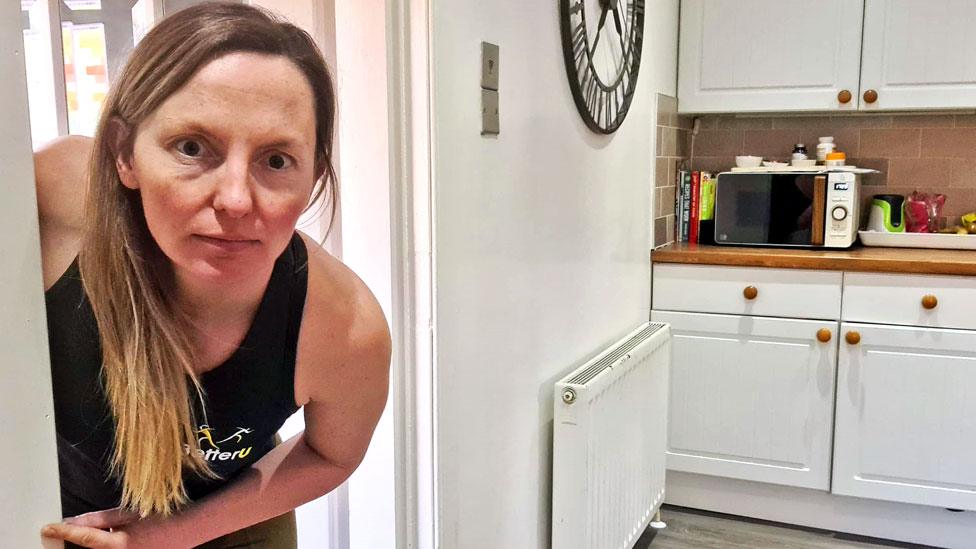Red squirrels: Vaccine call to save animal from killer pox
- Published
Conservation efforts have seen the number of red squirrels on Anglesey go from 40 to 1,000
Wales' red squirrels face being wiped out by a deadly virus unless a vaccine is developed, campaigners have warned.
The pox killed up to 80% of red squirrels over winter at one of just three sites where they can still be found in Wales.
Nearly 11,000 people have signed a petition calling on the Welsh government to fund vaccine research.
The Welsh government said it would look at "emerging evidence and opportunities to best support populations".
Invasive, non-native grey squirrels carry squirrel pox virus, but are not affected by it.
Dr Craig Shuttleworth, an honorary research fellow at Bangor University, said there were only about 1,000 red squirrels left in north Wales, mostly on Anglesey.
There are tiny populations at Treborth, near Bangor, and in the Clocaenog forestry near Ruthin, Denbighshire.
There is also a project to restore the squirrels to Ceredigion, but the numbers remain small.
"We've got 1,000 and believe it or not, that's a conservation success," said Dr Shuttleworth.
"When we started on Anglesey we only had 40, now we've got about 800, potentially a few more. But they are under threat, a massive threat."
There has been a successful programme to cull all the grey squirrels on Anglesey, to protect the reds, but this has proved almost impossible to repeat on the mainland.
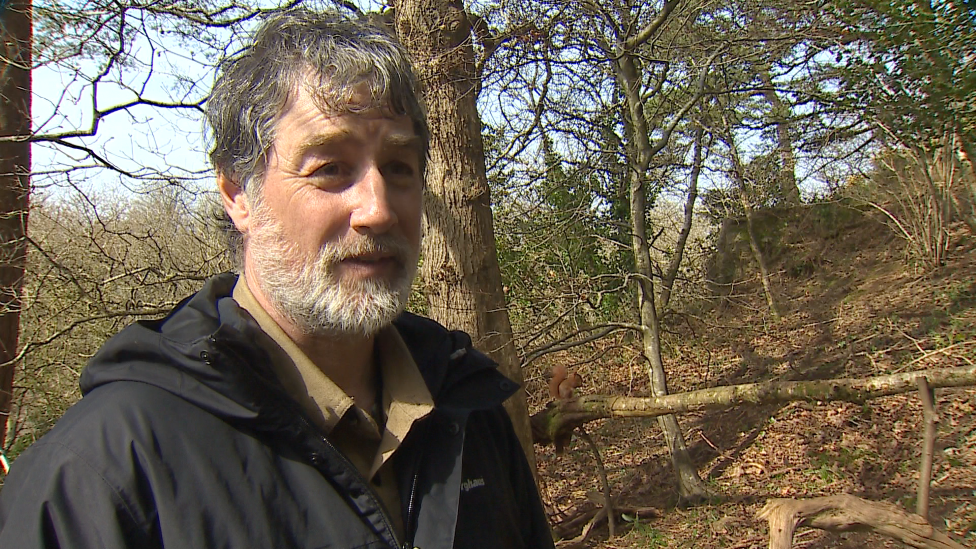
Dr Craig Shuttleworth says squirrel pox is the biggest threat facing native red squirrels in Wales
It led to the Treborth red squirrels almost being wiped out in November and December after coming into contact with grey squirrels carrying the pox virus.
The virus rapidly develops in the reds, causing cuts, blisters and growths on the skin. It is highly infectious and kills them in about three weeks.
Dr Shuttleworth said "we don't need a grey squirrel to set foot on the island for pox to come here" as reds moved between Anglesey and Gwynedd on the mainland.
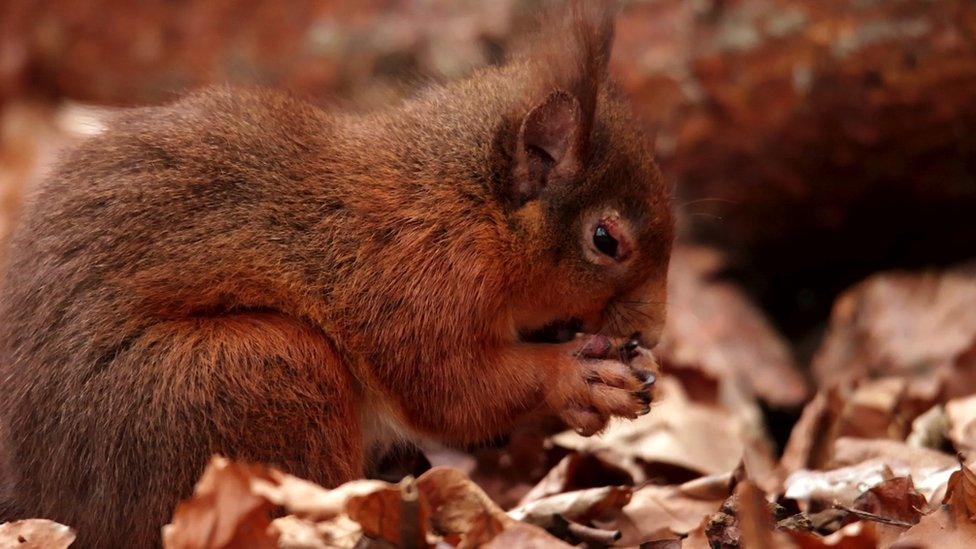
A red squirrel in Cumbria with lesions in his eyes and hands and that can barely eat - the virus is fatal to red squirrels
He is convinced a vaccine could help prevent further deaths and help rebuild the population across the UK.
According to the Red Squirrels Northern England group, there are now only 290,000 squirrels left in the UK.
"We are asking the Welsh government to take the lead, to be daring and to start funding vaccine research again," said Dr Shuttleworth.
A petition to the Senedd calling for the move has attracted 10,700 signatures, which means it will now be considered for a debate.
Work on a vaccine was under way at Scotland's Moredun Institute until funding dried up in about 2010.
Dr Colin McInnes, who led the original research programme, said there was "still quite a bit of work to be done", including how it would be delivered and how much protection it offered.
Those backing the vaccine bid believe it would be money worth spending, with Dr Shuttleworth estimating tourists coming to see the squirrels was already worth about £1m a year.
"What about the wellbeing value?" added Dr Shuttleworth.
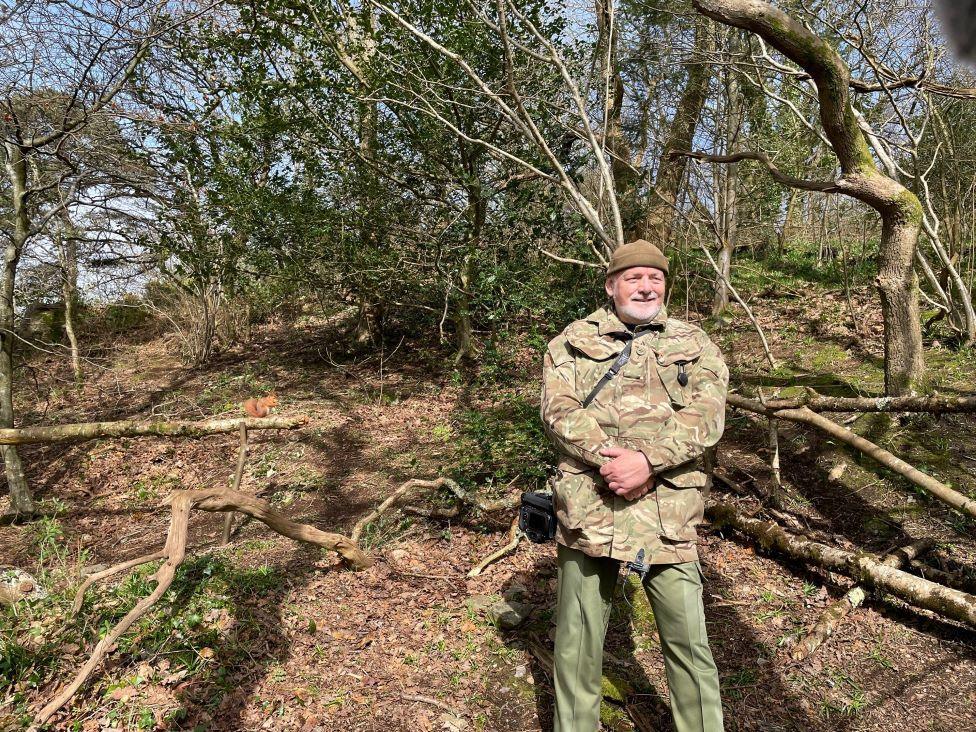
Hugh Rowlands has been dubbed "The Squirrel Whisperer"
One person who knows more about this than perhaps any other is Hugh Rowlands, a retired Army veteran from Llangefni on Anglesey.
He has post-traumatic stress disorder after his time in the military and seeing the red squirrels at a nature spot has changed his life.
"It's very rewarding. It used to stop me getting in trouble with the law," he confessed.
"I come here maybe five times a week for hours on end and just sit with the squirrels and feed them.
"If a grey squirrel came in here and these squirrels disappeared, I would be absolutely devastated - there's no two ways about it."
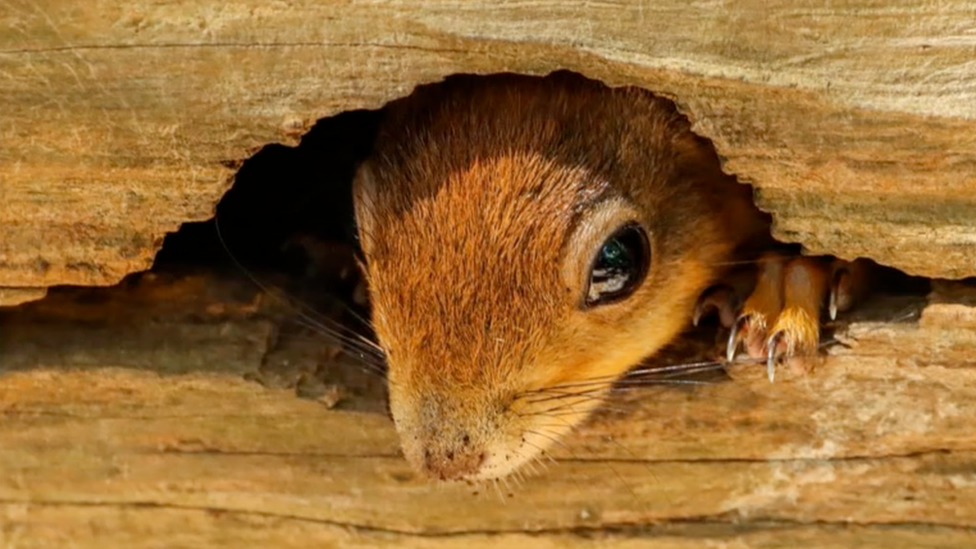
Hugh has been able to capture scores of images of his beloved red squirrels
Hugh has now spent so much time in the area, the squirrels come out when they hear his voice, knowing food will follow.
It earned him the nickname "The Squirrel Whisperer of the Dingle" from the television wildlife expert Iolo Williams.
But he is sceptical: "I think it's this Welsh accent of mine they hear, and I just talk and talk and they come down."
Responding to the petition lodged with the Senedd, a Welsh government official said: "We welcome the important work being carried out by people to protect this vulnerable species.
"We have seen some positive progress for increasing numbers of red squirrels in Wales but there is much more to do."
- Published5 December 2022
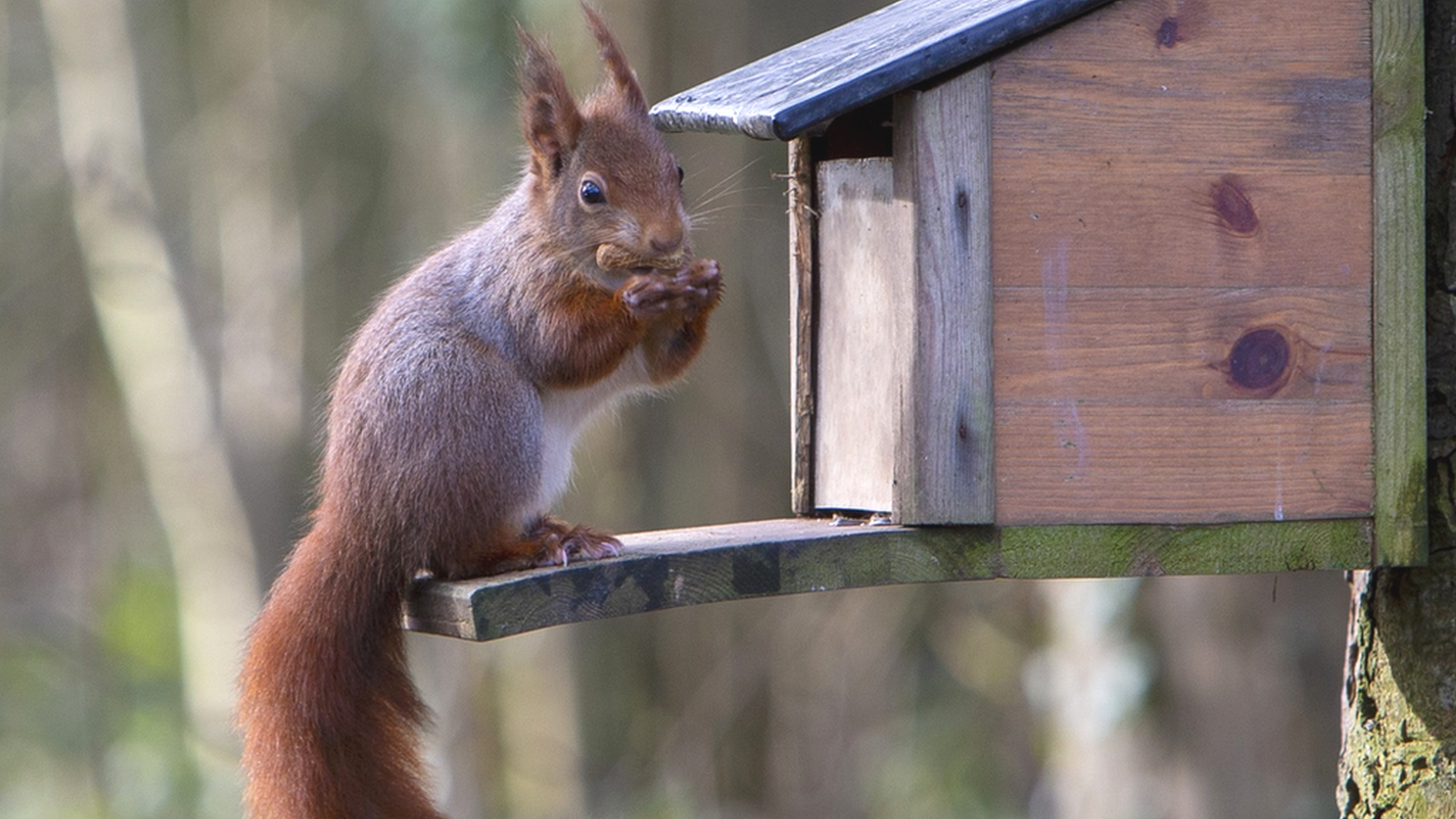
- Published13 October 2016
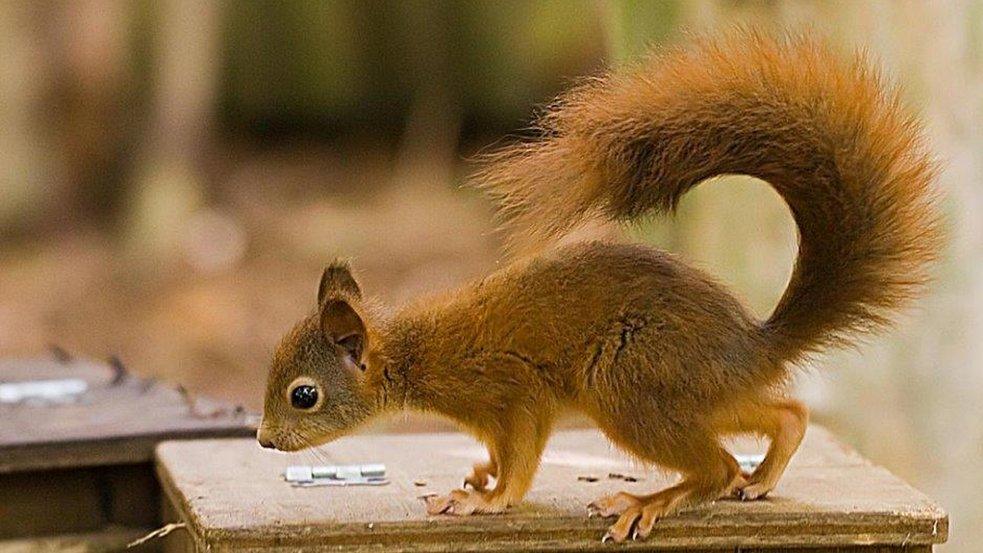
- Published4 April 2023
